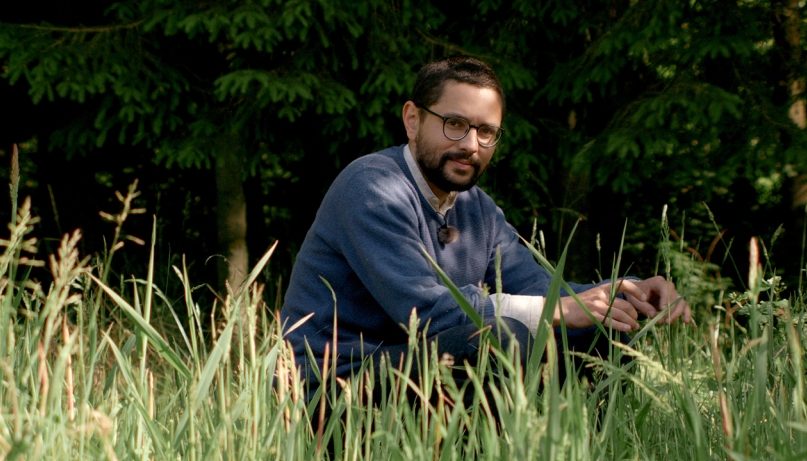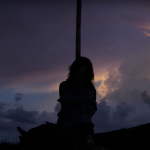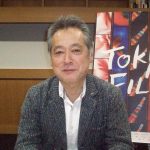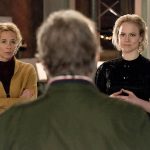A twisted highlight from this year’s Tokyo International Film Festival, Govinda Van Maele’s Gutland is a mind-bending and effectively constructed slow-burner of a film that sees German criminal Jens take refuge in a small Luxembourgish village. Jens’ self-preserving attempt to blend into his new environment renders him the unwitting subject of a sinister, psychosexual process of assimilation and domestication as the increasingly nightmarish rural landscape slowly reveals its unnerving secrets.
We met up with Van Maele to discuss this hallucinatory new work and the personal inspiration from which it came to be.
You’ve chosen to tell quite an unusual story here. What were your intentions going into this project?
Good question. The structure of the film is also quite unusual. In a way, it’s very classical but, at the same time, not at all. It couldn’t start more classical. It’s a guy coming into the village with some money and he’s looking for work. There was not one clear intention when I started writing it. It just kind of developed organically while I was doing it. We were writing over quite a long time so there was no formula of film genre that we wanted to follow but it has a lot of different influences in it.
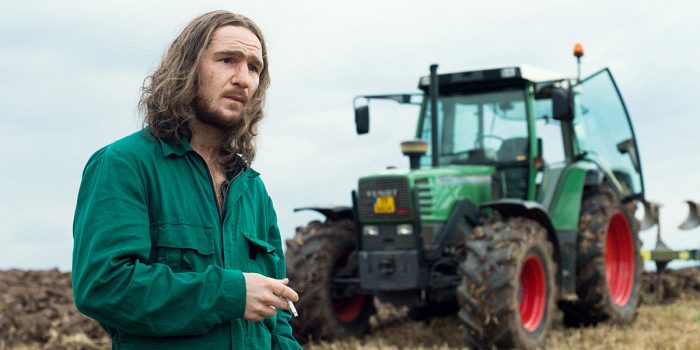
I come from a village in Luxembourg. I grew up there. I started making films as a teenager in this village with my friends and my neighbours. They were always genre films set on farms. Eventually I started making more social realist films with non-professional actors – stories taken out of life, half-documentary, half-fiction – and that took up my twenties, making these short films. I dabbled in documentaries as well. I made two documentaries. So when I made my first film, I wanted to reconnect a little bit with what got me started in the beginning, which was living on a farm, being obsessed with tractors and wanting to become a farmer actually, when I was young. That was before I wanted to become a filmmaker.
So obviously when you’re making a film, you’re looking for something personal, something that you know about, that resonates with your own life, and the first thing that resonates with me is the fact that I grew up in a village as a foreigner. My parents are immigrants and all my life I’ve wanted to fit in. And then there’s this love for genre film. I got into filmmaking by watching action films and things like that, then I got really into horror films and then all that shifted to European arthouse films. Once I discovered Wim Wenders and Werner Herzog and French cinema, I kind of left all genre films aside but I reconnected with it at a certain point. I think the style of the film brings those two things together: my love for genre film and my background in more social realist cinema.
And you’ve mentioned there’s also some commentary in this film regarding the current state of Europe?
Yeah. When we started writing the film, the migrant crisis had started. They’d been coming into Europe a long time but it wasn’t at the point where it was on the mind of everyone and the main subject in newspapers. But I think identity’s such a strong subject for everyone in the world right now, especially in Europe. We’re all struggling with it. We don’t really know how to handle it. Are we happy being proud of our identity or is it something that we’d rather get rid of? Like I said, it’s something that I have in my life as well because I had foreign parents while growing up in Luxembourg, speaking Luxembourgish, so I’m constantly confronted with identity questions.
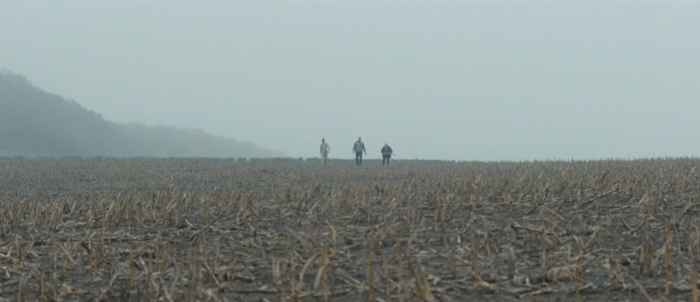
So there is this theme throughout the whole film. While we were making the film, we realised it is actually a very strong subject in Europe right now because there are foreigners coming to Europe and it really scares the hell out of everyone, especially in central Europe. So in a way, it’s a timely subject but it was not the intention when we started.
The film contains a lot of imagery we would traditionally associate with central Europe, like the big bands and the rural landscapes.
Yeah, that’s how Luxembourg looks, really. The landscapes were shot very close to where I live. The three trees that you see five times in the film are two kilometres from where I live, and I’ve made films on that field before. When I was a child, I loved this area and I wanted to make a film which speaks about the trouble I had growing up there but at the same time about how much I love this place. So all these images are basically where I come from. And brass bands are a very common Luxembourgish thing. It’s a main pastime. If you’re a farmer, you go to play once a week. Every farmer plays a brass instrument in my village.
So you have good memories of growing up in this setting but there’s also an eerie undercurrent to the film.
Yeah, I think if you care about your culture you have to look at it very closely. Especially artists, I think, have to be critical about their own culture. It’s essential. If you want to live in a sane society, you have to look at the downsides as well and digest them in your art. Growing up as a young person in Europe, there are a lot of things you’re confronted with that you might criticise. But it’s also out of fondness for the place I come from, and I hope that’s something that’s also clear in the film. It’s not a film where I want to criticise any place in particular. It’s more about the experience of living there and growing up there, if that makes sense.
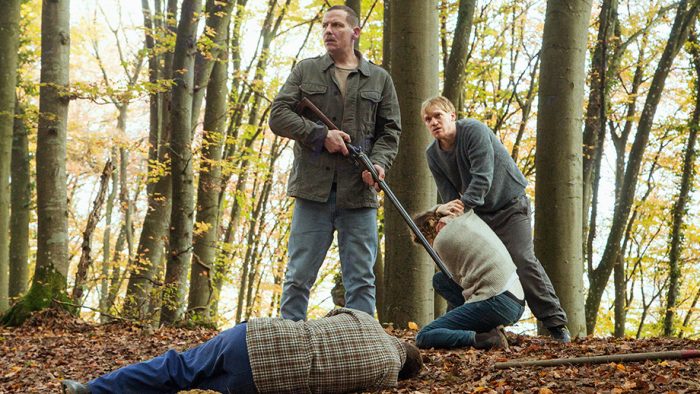
I responded to this film primarily as a psychological work.
Yeah, the whole film is really in the mind of Jens. We see everything through his eyes. On a very basic level, you could say it’s a story about a guy who meets a girl and the girl makes him into another person. We joked about this a lot. She dresses him differently, she kind of subtly alters his interests in things and the whole film is a visualisation of this idea. I’m not saying that the film is about this but that’s one way you could read it. So it’s a visualisation of a psychological state if you want. It’s a relationship and he’s changing into someone else and he’s actually physically changing.
And to play devil’s advocate, could this also be seen as the story of a criminal getting ‘fixed’?
Yeah, it’s about the integration of a criminal element also. The idea of happiness is living in a new house with the million-dollar family: you have a boy, a girl and a dog. And then you have a nice secure job and that’s a happy ending for most people. It’s the perfect, happy life – I never saw it that way. For me, it’s more a scary concept than anything else, and it’s a prison too, especially in the system that we live in. What are you working for? Is it for yourself? Are you working for the company? I don’t want to go as far as calling it slavery but you can see it as that as well.
I think the film plays on that idea too – that the perfect life, in the end, is a kind of selling out. I’m 34. I started writing this when I was near the end of my twenties and that’s when everyone was coming back to Luxembourg after living in Berlin and London and Paris. After talking about how they want to live their own life somewhere else, everyone comes back and goes back into the routine. They get a job, a house, get married. I got married and I have a kid and it all happened while I was making the film. We were all laughing about it. It’s sort of a way of dealing with growing up and becoming an adult in a humorous way.
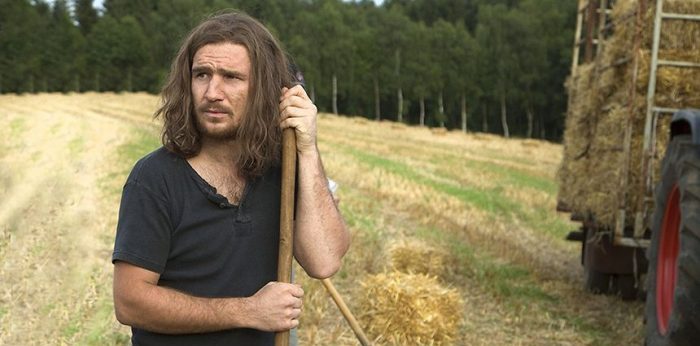
This film doesn’t reflect your own experience of marriage, does it?
No, but it might be a way of dealing with the fear that it might turn out like that.
I notice a lot of this story is told in sexual terms: Jens’ affair, the nude photos…
Yeah, there’s nothing more private than sex, basically. The film starts at the surface and then it delves into the very private, very deep, very hidden parts of all these people living in this village and sexuality is one of these dark elements.
And for Jens, the whole process is a kind of seduction.
Yeah, he’s being seduced into the village. There’s a Verhoeven quote where he says that in sexuality you can express a lot of things you cannot express in any other way. He says that in his films he never shoots a sex scene that is gratuitous. It’s always expressing something that you cannot express in any other way.
If you really want to get to know a person, you probably have to see them having sex. There are things that you don’t know of people, even of your best friends. There might be something in their minds which is only expressed in sexual intercourse. So that’s maybe one reason, especially in the sex scene at the end, which is very violent. I think that’s the darkest point for this character. We see something which they put into a box and only open every Saturday night, and this is where we hit the abyss of this character.
Gutland screened as part of the 2017 Tokyo International Film Festival.
Find more European films here.
Cover photo from cinema.arte.tv

